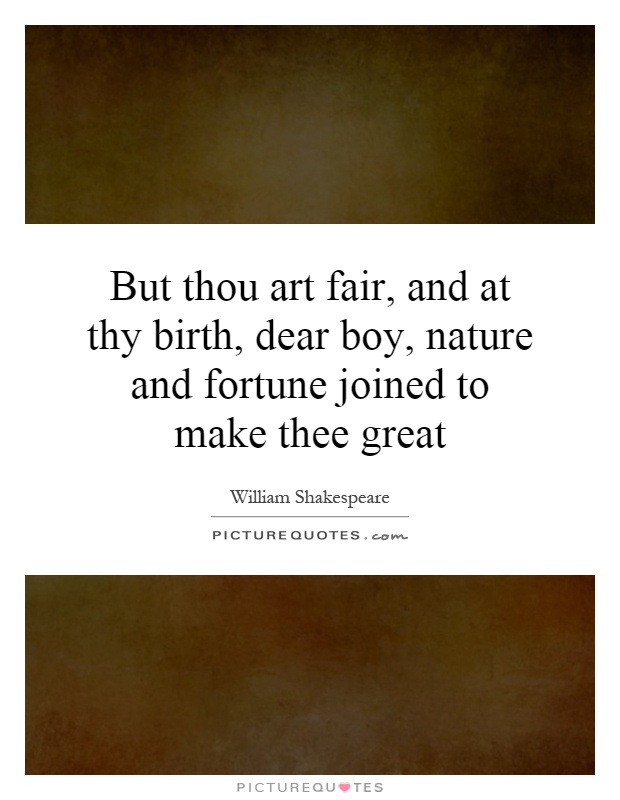But thou art fair, and at thy birth, dear boy, nature and fortune joined to make thee great

But thou art fair, and at thy birth, dear boy, nature and fortune joined to make thee great
In William Shakespeare's play "The Tragedy of King Richard III," the character of Queen Elizabeth speaks these words to her son, Prince Edward. The quote reflects the complex relationship between nature and nurture, as well as the idea of fate and destiny.Queen Elizabeth is acknowledging that her son is inherently good and noble, possessing qualities that make him destined for greatness. She believes that both nature and fortune have played a role in shaping his character and future. The phrase "But thou art fair" suggests that the prince is not only physically attractive but also morally upright and virtuous.
The idea of nature and fortune joining together to make someone great is a recurring theme in Shakespeare's works. It speaks to the belief that a person's innate qualities, as well as external circumstances and opportunities, can influence their success and achievements. In this case, Queen Elizabeth is expressing her belief that her son's birthright and upbringing have set him on a path to greatness.
The quote also highlights the role of fate and destiny in shaping the lives of individuals. Queen Elizabeth sees her son as being destined for greatness, regardless of the challenges and obstacles he may face. She believes that his inherent goodness and noble qualities will ultimately lead him to success and glory.
Overall, this quote from "The Tragedy of King Richard III" captures the complex interplay between nature, nurture, fate, and destiny in shaping the lives of individuals. It reflects Shakespeare's exploration of these themes throughout his works and underscores the idea that greatness is often a combination of innate qualities and external circumstances. Queen Elizabeth's words to her son serve as a reminder of the power of both nature and fortune in shaping our lives and destinies.












 Friendship Quotes
Friendship Quotes Love Quotes
Love Quotes Life Quotes
Life Quotes Funny Quotes
Funny Quotes Motivational Quotes
Motivational Quotes Inspirational Quotes
Inspirational Quotes